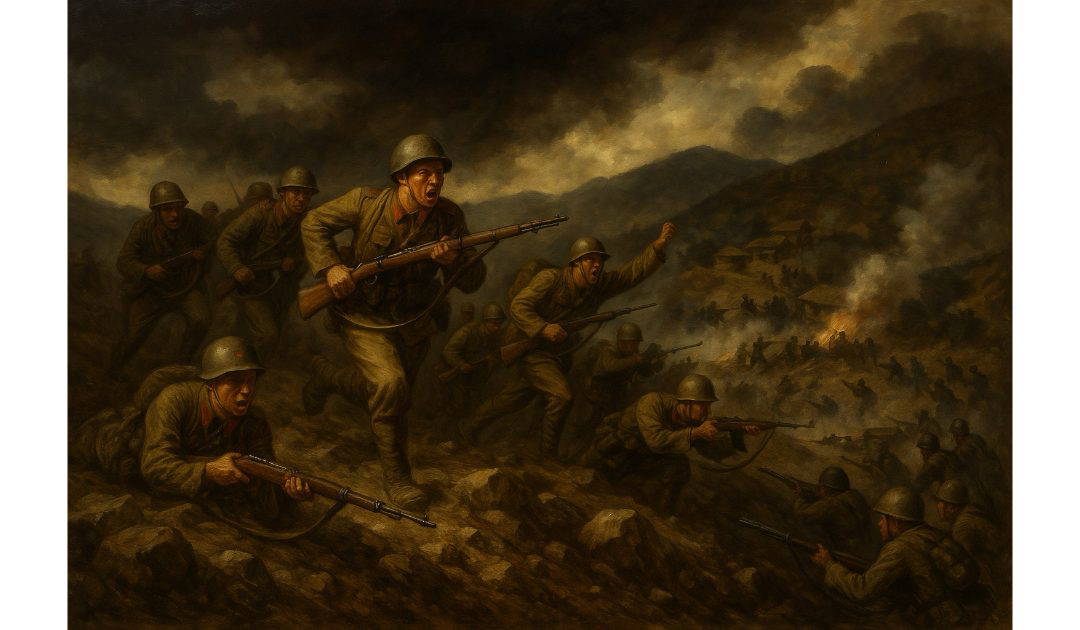The Korean War began on the 25th of June, 1950, when North Korean forces, backed by the Soviet Union and China, crossed the 38th parallel and invaded South Korea. This marked the beginning of a brutal conflict that lasted until the 27th of July, 1953, leaving deep scars on the Korean Peninsula and shaping global geopolitics during the Cold War era.
Post-World War II, Korea, which had been under Japanese rule since 1910, was liberated in 1945. The peninsula was divided along the 38th parallel into two zones of occupation: the Soviet Union controlled the north, while the United States administered the south. This division was meant to be temporary, but ideological differences led to the establishment of two separate governments by 1948: the communist Democratic People’s Republic of Korea (North Korea) led by Kim Il-sung, and the capitalist Republic of Korea (South Korea) under Syngman Rhee. Tensions escalated as both leaders aspired to unify Korea under their respective regimes. The situation reached a boiling point when North Korean troops launched a surprise attack on South Korea, aiming for rapid conquest.
In response to the invasion, the United Nations, with strong support from the United States, swiftly intervened. Under the command of General Douglas MacArthur, UN forces were initially pushed back to the Pusan Perimeter in the southeast. However, a daring amphibious landing at Incheon in September 1950 turned the tide, enabling UN forces to recapture Seoul and advance deep into North Korea.
This victory was short-lived. As UN troops approached the Yalu River, bordering China, the Chinese People’s Volunteer Army entered the war in October 1950, launching a counter-offensive that forced UN forces into a retreat. The conflict stabilised around the 38th parallel, leading to a grueling stalemate characterised by trench warfare reminiscent of World War I.
The Korean War inflicted immense suffering. Estimates suggest that around 2.5 million civilians died, along with approximately 1.2 million soldiers from both sides. Cities were reduced to rubble, families were torn apart, and the peninsula was left devastated.
Prisoners of war faced harsh conditions, and atrocities were committed by both sides. The war also witnessed the extensive use of air power, with the US conducting relentless bombing campaigns over North Korea, targeting infrastructure and civilian centres to weaken the enemy’s resolve.
After years of fierce fighting and fruitless negotiations, an armistice was signed on the 27th of July ,1953, at Panmunjom. The agreement established the Korean Demilitarised Zone (DMZ), a heavily fortified 250-kilometre-long border that remains one of the most militarised areas in the world. Notably, no formal peace treaty was ever signed, technically leaving North and South Korea still at war.
The war’s aftermath saw South Korea gradually transform into a vibrant democracy with a booming economy, while North Korea became an isolated, authoritarian state with a strong emphasis on military power. The division of Korea remains one of the most enduring legacies of the Cold War.
The Korean War had far-reaching consequences. It solidified the division of the Korean Peninsula and entrenched Cold War dynamics, intensifying the rivalry between the US and the Soviet Union. The conflict also prompted the US to increase its military presence globally and strengthen alliances, notably with Japan and NATO members.
For China, the war elevated its status as a significant military power capable of challenging Western forces. The war also influenced US foreign policy, leading to a more aggressive stance against the spread of communism, evident in later conflicts like the Vietnam War.
Despite its significance, the Korean War often receives less attention than other major conflicts of the 20th century. However, its impact is undeniable. The war shaped the political landscape of East Asia, affected millions of lives, and left a legacy that continues to influence international relations. Perhaps the best memorial to the cost, horror, and waste of the Korean War is M*A*S*H in both the motion picture and TV series.

